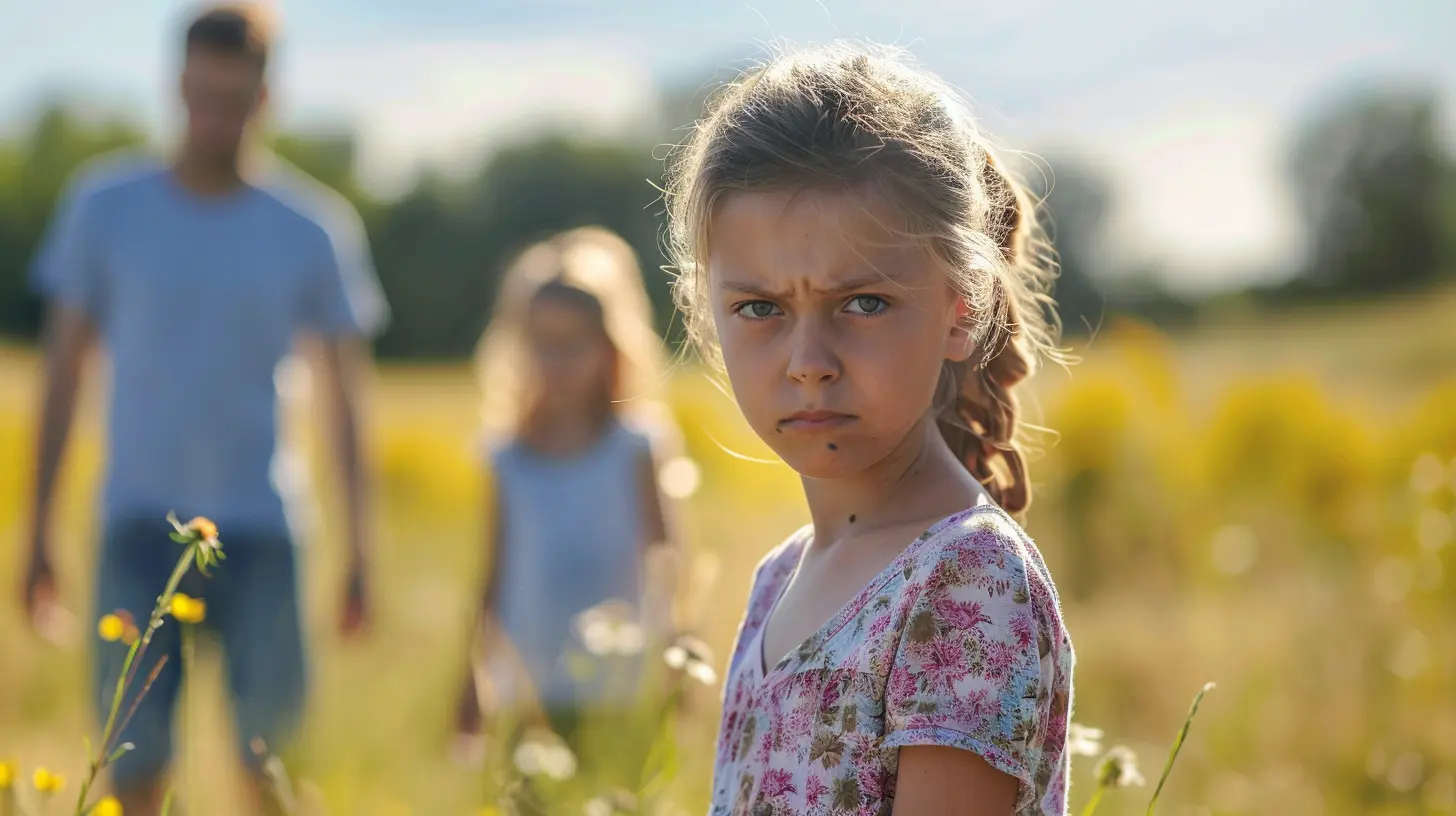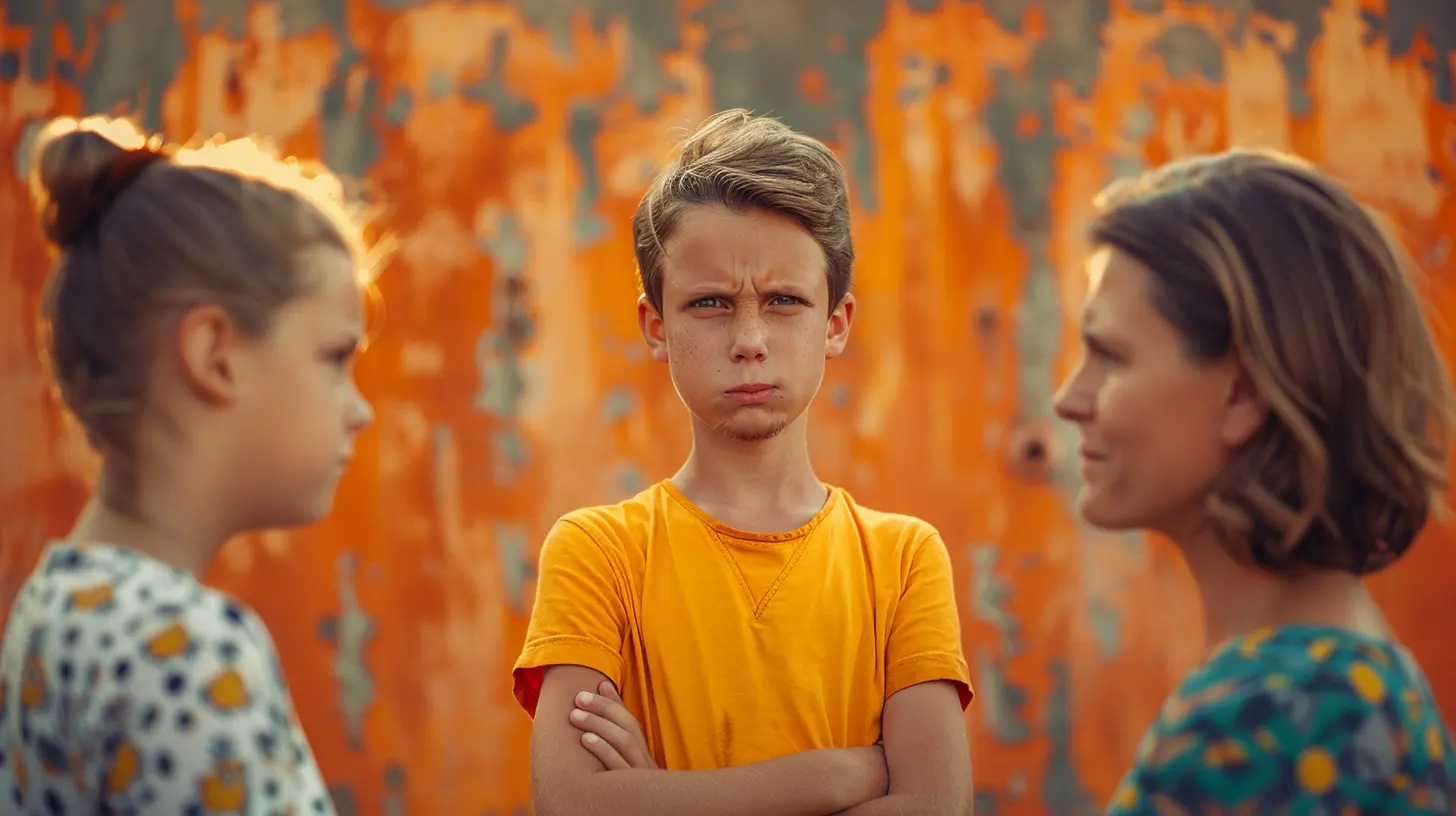Never Apologizing: A Parenting Mistake That Breeds Resentment
29 March 2025
Parenting is no easy feat. We juggle responsibilities, make tough decisions, and sometimes, we make mistakes. But what happens when parents refuse to apologize? Many believe that saying "sorry" to their child undermines authority, but in reality, it teaches respect, accountability, and emotional intelligence. Failing to acknowledge our mistakes can unintentionally create resentment and distance between us and our kids.
Let’s dive deep into why never apologizing is a major parenting pitfall, and how doing the opposite can strengthen our bond with our children. 
The Common Misconception: "Parents Should Always Be Right"
Many parents grew up in households where apologies were unheard of. The golden rule? "Because I said so." There was no room for questioning authority, and if a child was hurt emotionally or physically, the expectation was to move on.This mindset often spills into modern parenting. Some believe that apologizing diminishes their power. They fear that saying "sorry" will make them seem weak or that their child will start questioning their authority.
But here’s the truth: Parenthood isn’t about being infallible. It’s about leading by example.
When we refuse to acknowledge our errors, we send a damaging message—one that tells kids that authority figures don’t have to be accountable for their actions. 
How Refusing to Apologize Breeds Resentment
So, what happens when parents never say "I’m sorry"? The consequences can be deeper than we think.1. It Creates Emotional Distance
Imagine having a friend who never admits when they’re wrong. How would that make you feel? Over time, you’d probably feel frustrated, unheard, and distant from them. The same applies to parent-child relationships.When parents refuse to apologize, children may start shutting down emotionally. They might feel like their feelings don’t matter, which can lead to a lack of trust and communication.
2. It Teaches Kids That Apologies Are a Sign of Weakness
Kids learn by observation. If they never see their parents apologize, they may internalize the belief that saying "sorry" is a weakness.This can lead to problems in their own relationships—friendships, romantic relationships, and even professional interactions. They might resist apologizing when they hurt someone, continuing a toxic cycle of pride and avoidance.
3. It Fuels Resentment and Defiance
Children have emotions just like adults. They can feel anger, disappointment, and frustration, especially when they’re wronged. When their feelings are ignored, they may start rebelling—not as a means of being "difficult," but as a way to express their resentment.As they grow older, this unresolved frustration can result in strained relationships between parents and children. Some kids may become distant or seek validation from external sources instead.
4. It Prevents Conflict Resolution Skills
Apologies aren't just about admitting fault—they’re about repairing relationships. When children don’t see conflict resolution modeled at home, they struggle with it outside of the home.A child who never sees a parent apologize may develop unhealthy habits when dealing with conflict. They may avoid confrontation altogether, lash out, or struggle to maintain healthy relationships. 
Why Apologizing Strengthens Parent-Child Bonds
Contrary to the belief that apologizing weakens authority, it actually strengthens relationships. Here’s why:1. It Teaches Empathy
Saying "I’m sorry" helps children understand the importance of taking responsibility for their actions. It teaches them that everyone makes mistakes, and what truly matters is how we handle those mistakes.When parents apologize for yelling or overreacting, they show their child that emotions are normal, but missteps should be acknowledged and corrected.
2. It Builds Trust and Respect
Think about someone you genuinely respect. Chances are, they’ve admitted their mistakes at some point.Apologizing to your child fosters trust. It reassures them that their feelings are valid, encouraging them to come to you with their own problems instead of shutting you out.
3. It Encourages Honest Communication
Children mimic what they see. If they grow up in a household where owning up to mistakes is normal, they’ll feel more comfortable being honest about their own missteps.Instead of hiding things out of fear, they’ll be more likely to come to you when they mess up, knowing they won’t be unfairly judged.
4. It Helps Kids Develop Emotional Intelligence
Emotional intelligence is key to forming strong relationships and navigating life’s challenges. When parents apologize, they model self-awareness, humility, and problem-solving.A child who sees their parent apologize learns that relationships require effort, understanding, and compromise. 
How to Apologize to Your Child the Right Way
Apologizing isn’t about admitting defeat—it’s about teaching accountability. But how you apologize matters. A half-hearted or defensive apology won’t have the same impact as a heartfelt, sincere one.Here’s how to do it effectively:
1. Be Specific
Instead of a vague "Sorry," acknowledge exactly what you did wrong. For example:- "I’m sorry for yelling at you earlier. I was frustrated, but that’s not an excuse to raise my voice."
2. Acknowledge Their Feelings
Show your child that their emotions matter.- "I can see that my words hurt you. That wasn’t my intention, but I understand why you feel that way."
3. Explain Without Making Excuses
You can provide context, but don’t justify bad behavior.- "I was really stressed, but I shouldn’t have taken it out on you."
4. Ask for Forgiveness
Give them the space to process what happened.- "I hope you can forgive me. I’ll try to handle my frustration better next time."
5. Show Through Actions
Words are powerful, but actions reinforce those words. If you apologize for yelling, make an effort to manage stress better in the future.Breaking the Cycle
If you grew up in a home where apologies were rare, breaking that cycle might feel uncomfortable. But being the parent who models accountability can have a lasting positive impact on your child’s emotional well-being.Children who grow up in homes where apologies are normalized will:
✔ Feel safe expressing their emotions
✔ Develop strong communication skills
✔ Be more empathetic and understanding
✔ Learn to build healthy relationships
It’s never too late to start incorporating apologies into your parenting. Whether your child is a toddler or a teenager, showing them that mistakes are part of being human—and that making amends is the right thing to do—goes a long way.
Final Thoughts
Parenting isn’t about being perfect—it’s about being real. Refusing to apologize doesn’t make us stronger; it creates emotional barriers. Owning our mistakes teaches our kids that accountability and empathy matter.So, the next time you lose your temper, dismiss their feelings, or make an unfair decision, take a deep breath and say, "I’m sorry." You might be surprised at how much closer it brings you and your child.
all images in this post were generated using AI tools
Category:
Parenting MistakesAuthor:

Austin Wilcox
Discussion
rate this article
4 comments
Clementine White
Great insights! Avoiding apologies can create distance in parent-child relationships. Acknowledging mistakes fosters trust and understanding. Balancing authority with humility is key to nurturing a strong, respectful bond that can withstand challenges. Thank you for sharing!
April 29, 2025 at 2:46 PM

Austin Wilcox
Thank you for your thoughtful comment! I completely agree—acknowledging mistakes truly strengthens trust and fosters deeper connections in parenting.
Kaitlyn McManus
Modeling accountability fosters healthy communication and strengthens parent-child relationships.
April 4, 2025 at 4:06 AM

Austin Wilcox
Absolutely! Modeling accountability not only improves communication but also builds trust and resilience in parent-child relationships.
Astraea Cantu
Absolutely loved this perspective! It's so true—apologizing teaches our kids humility and accountability. It's a simple yet powerful way to model healthy relationships. Thanks for the reminder to embrace vulnerability in parenting!
April 1, 2025 at 3:16 PM

Austin Wilcox
Thank you for your thoughtful comment! I completely agree—modeling humility through apologies fosters stronger, healthier relationships with our kids.
Gisela Holland
This article insightfully highlights the importance of modeling accountability for our children. By acknowledging our mistakes, we foster resilience and emotional intelligence, nurturing healthier relationships and reducing the risk of resentment in family dynamics. Great read!
March 30, 2025 at 2:29 PM

Austin Wilcox
Thank you for your thoughtful comment! I'm glad you found the article insightful and valuable for fostering resilience and healthier family dynamics.



